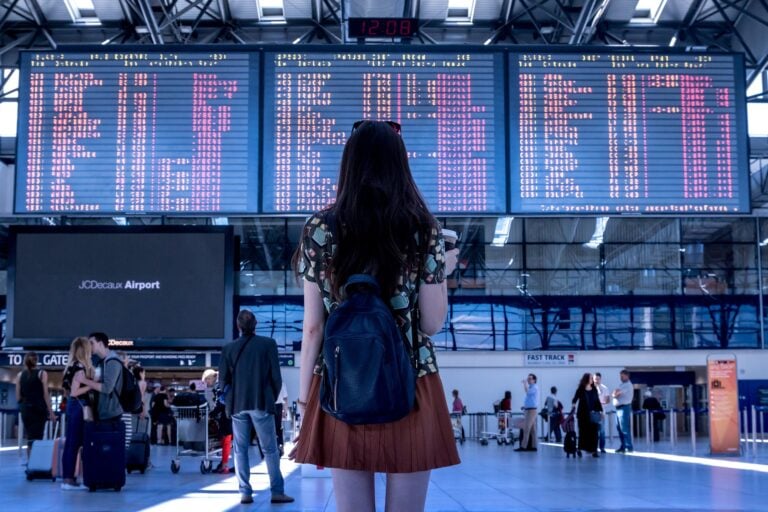
Since the start of the pandemic, Japan has kept its borders tightly shut to foreign visitors. Returning natives even had a hard time getting back into the country, with PCR test requirements, proof of vaccinations, and strict hotel quarantine rules all in place.
But as of October 10th 2022, Japan finally unlocked the gates and threw open the doors… Well, kind of.
Japan’s Border Entry Requirements
The Ministry of Health, Labour and Welfare website offers a concise explanation of the current entry requirements:

But, as is often the case in Japan, things are not quite as simple as they seem.
Valid Vaccination Certificate
If you want to pass through immigration in the smoothest fashion, presenting a vaccination certificate might be the best option for you.
There are 3 rules that you must follow for this certificate to be deemed valid:
- It must be issued by a government or public institution. (Your local government, a medical institution, or somewhere deemed “equivalent” to either of those- whatever that means.)
- The following items must be provided in Japanese or English: name, date of birth, vaccine name/manufacturer, date of vaccination, and the number of doses administered.
- If your date of birth isn’t included, then some way of verifying the certificate is yours, such as matching passport numbers, is also valid.
- If your certificate isn’t in Japanese or English, then an accompanying translation is required/
- The certificate must show that you have received three doses of a vaccine that is currently recognised by Japan:
- Pfizer/BioNTech/Fosun Pharma – COMIRNATY intramuscular injection OR COMIRNATY RTU intramuscular injection
- Moderna – Spikevax intramuscular injection
- AstraZeneca – Vaxsevria intramuscular injection
- Serum Institute of India – Covishield
- Janssen – JCOVDEN intramuscular injection
- Bharat Biotech – COVAXIN
- Novavax – Nuvaxovid intramuscular injection
- Serum Institute of India – COVOVAX
- Sinopharm/Beijing Institute of Biological Products – Covilo OR BBIBP-CorV OR Inactivated COVID-19 Vaccine (Vero Cell)
- Sinovac – CoronaVac OR COVID-19 Vaccine (Vero Cell), Inactivated
- CanSino Biologics – CONVIDECIA
Travel Without Vaccination
Travel to Japan is also possible without being vaccinated (or not meeting the vaccine requirements stated above). In this case, you will have to present proof of a negative test.
Of course, there are rules for this also:
- The test must be taken within 72 hours of departure.
- The test results must include the following items: Full name, date of birth, testing method (more on this below), sample, specimen collection date and time, result, name of the medical institution, and date of issue.
- The test must be in either Japanese or English.
- The test must be one of the following types:
- PCR
- LAMP
- TMA
- TRC
- Smart Amp
- NEAR
- Next Generation Sequence
- Quantitative Antigen Test (CLEIA/ECLIA) *Not a Qualitative Antigen Test
- The sample collection must be one of the following methods:
- Nasopharyngeal Swab
- Nasal Swab
- Saliva
- Nasopharyngeal and Oropharyngeal Swabs
Paper or Digital?
On a positive note, electronic vaccine certificates and test results are accepted when entering Japan. These digital versions must, however, be in a non-editable format (no Word documents or Emails, for example).
Another little detail that needs to be considered, is that anyone over the age of 13 entering Japan MUST be in possession of a smartphone. This is so they can install any required apps from the Ministry of Health, Labour and Welfare (currently, this is the MySOS app). If you don’t have a smartphone capable of downloading the app, you will be asked to rent one at the airport upon arrival.

Rules for Children
There are different guidelines for children, and these are based on the child’s age and vaccination status.
If the child is vaccinated, then the same rules apply as stated above.
If the child is not vaccinated, then there are 3 different rules to be aware of:
- If a child (under 18 years old) is not vaccinated but is travelling with a vaccinated parent or guardian (who can provide the required evidence as stated above), then the child DOES NOT need to provide a negative PCR test result.
- If a child (under 18 years old) is not vaccinated and is either travelling alone or with a similarly unvaccinated parent or guardian, the child must present a valid negative PCR test result.
- If a child (under 6 years old) is not vaccinated and is either travelling alone or with a similarly unvaccinated parent or guardian, the child does not need to present a valid negative PCR test result, as long as their parent or guardian has proof of a negative PCR test result.
Are you still following along? Great, because there’s more…
- If you plan to enter Japan after November 14th, you will need to use the Visit Japan Web online service, rather than the MySOS app.
- If your flight is delayed or cancelled on the day of departure, what does this mean for the 72-hour window of your Covid-19 test? Well, if your new flight is within 96 hours of the test’s specimen collection, it is NOT necessary to obtain the certificate again and you may board the aircraft. On the other hand, if your new flight is over 96 hours from the time of the specimen collection, you MUST take a new test and receive a new certificate.
- The MySOS app should be installed and the relevant vaccination or test information input at least 6 hours prior to arriving in Japan.
- If you change your travel plans after completing the required information for the MySOS app, you’ll have to delete it, reinstall it, and input your new travel information.
- A handwritten CDC vaccination card IS valid as proof of vaccination.
Some good news
Before the pandemic, there were 68 countries that were exempt from short-stay visas. This exemption has now been reinstated again. These stays range from 14 – 90 days depending on your nationality (here’s the complete list).
And Breathe
That’s pretty much it for the latest travel news from Japan. The entry procedures still might give you a slight headache, but it’s a whole lot better than the previous rules (mandatory guided tours, hotel quarantines, no public transportation, etc.).
If you have any questions, or comments, or want to share your experiences with Japan’s border restrictions, we’d love to hear from you.

















